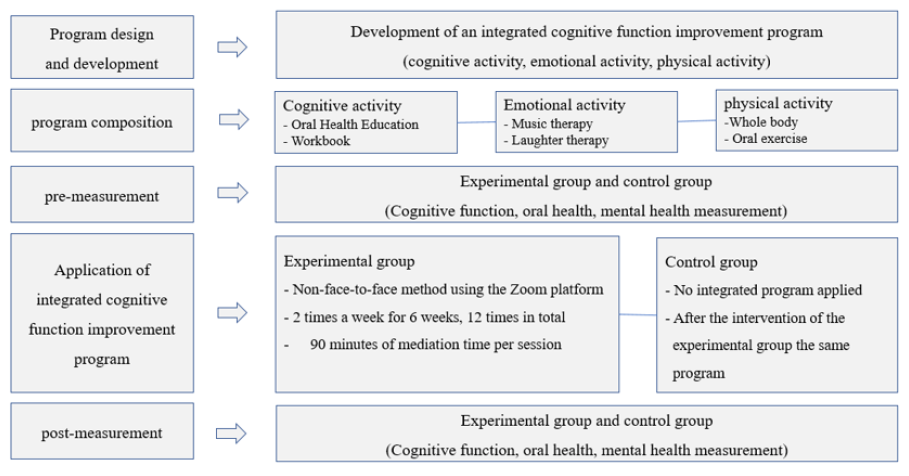Abstract
We developed an integrated cognitive function improvement program comprising cognitive, emotional, and physical domains, and remotely applied it to middle-aged adults to investigate its effects on oral health, cognitive function, and mental health improvement. The experimental group underwent the program remotely, using the Zoom platform. A total of 24 participants were recruited and divided into 12 experimental and 12 control groups. The program comprised cognitive, emotional, and physical activities. The sessions lasted 90 min and were performed twice a week for 6 weeks from April to May 2022. Cognitive function, arousal, physical, and mental stress were significantly improved in the experimental group after the intervention than at the baseline (
Figures & Tables

Fig. 1. Study design and procedure


